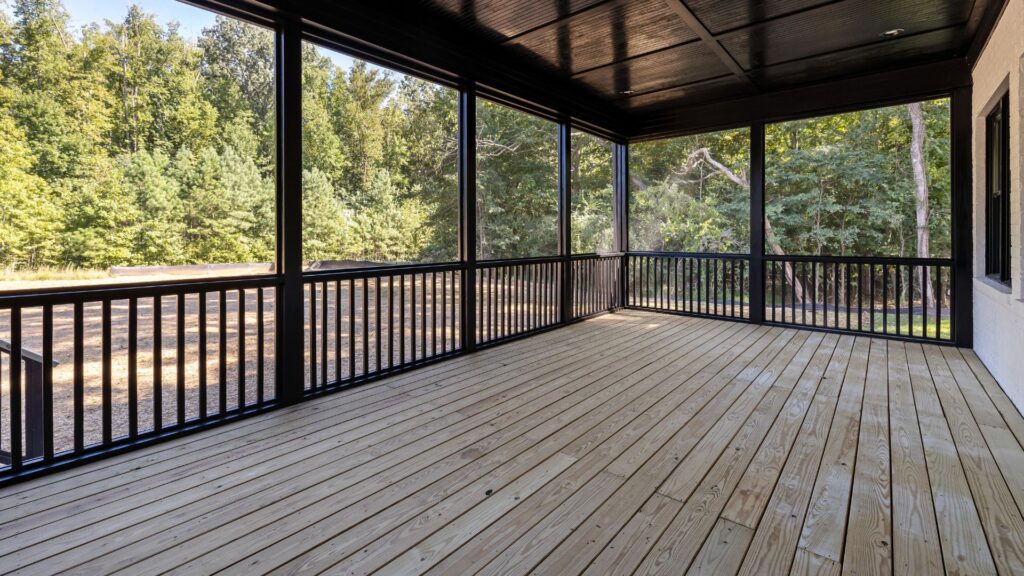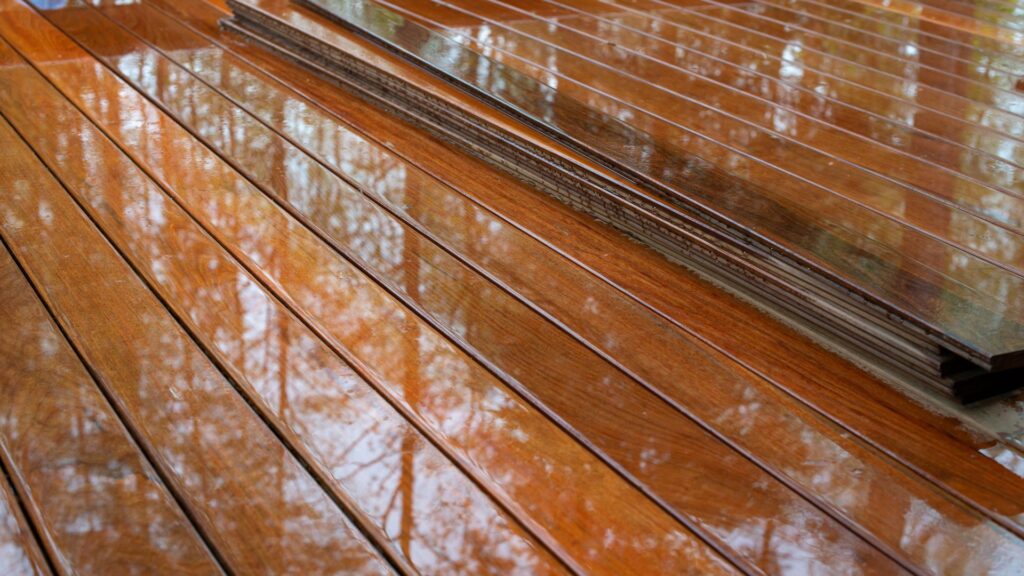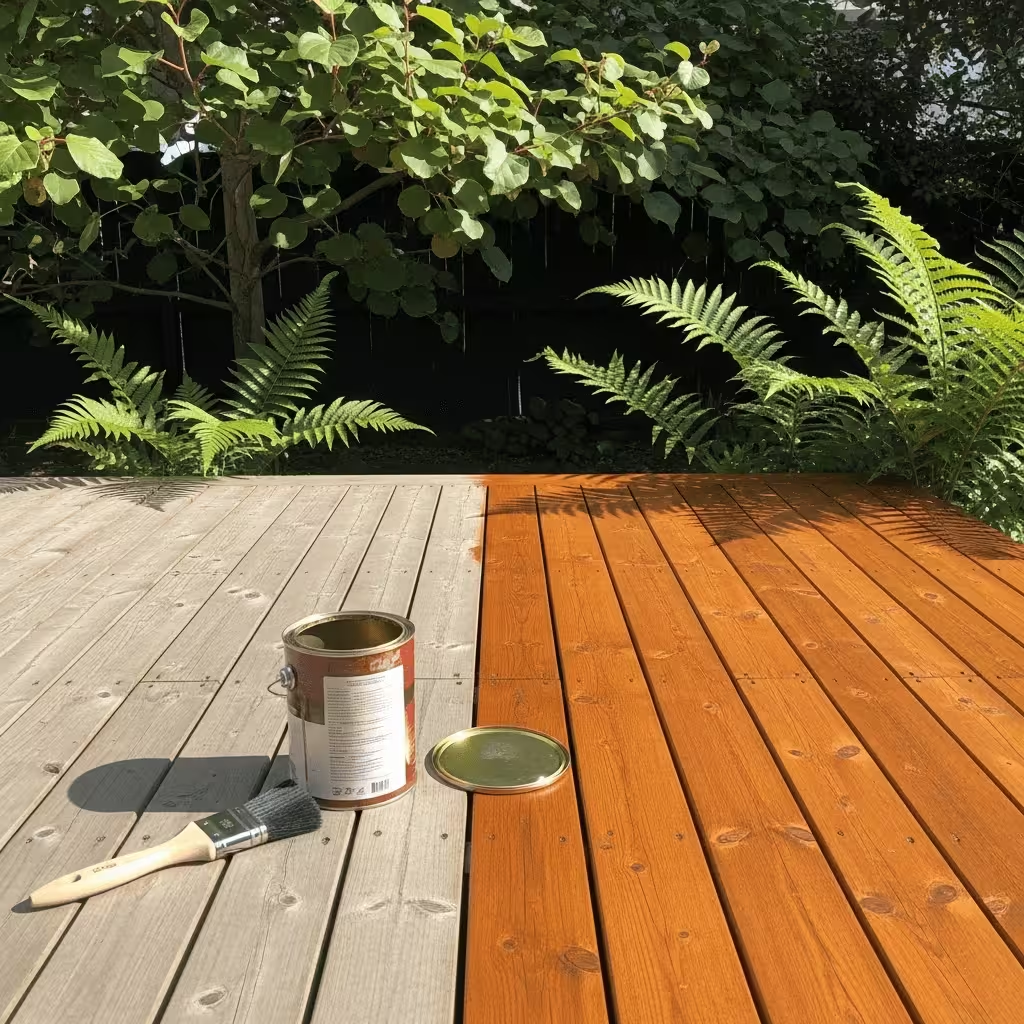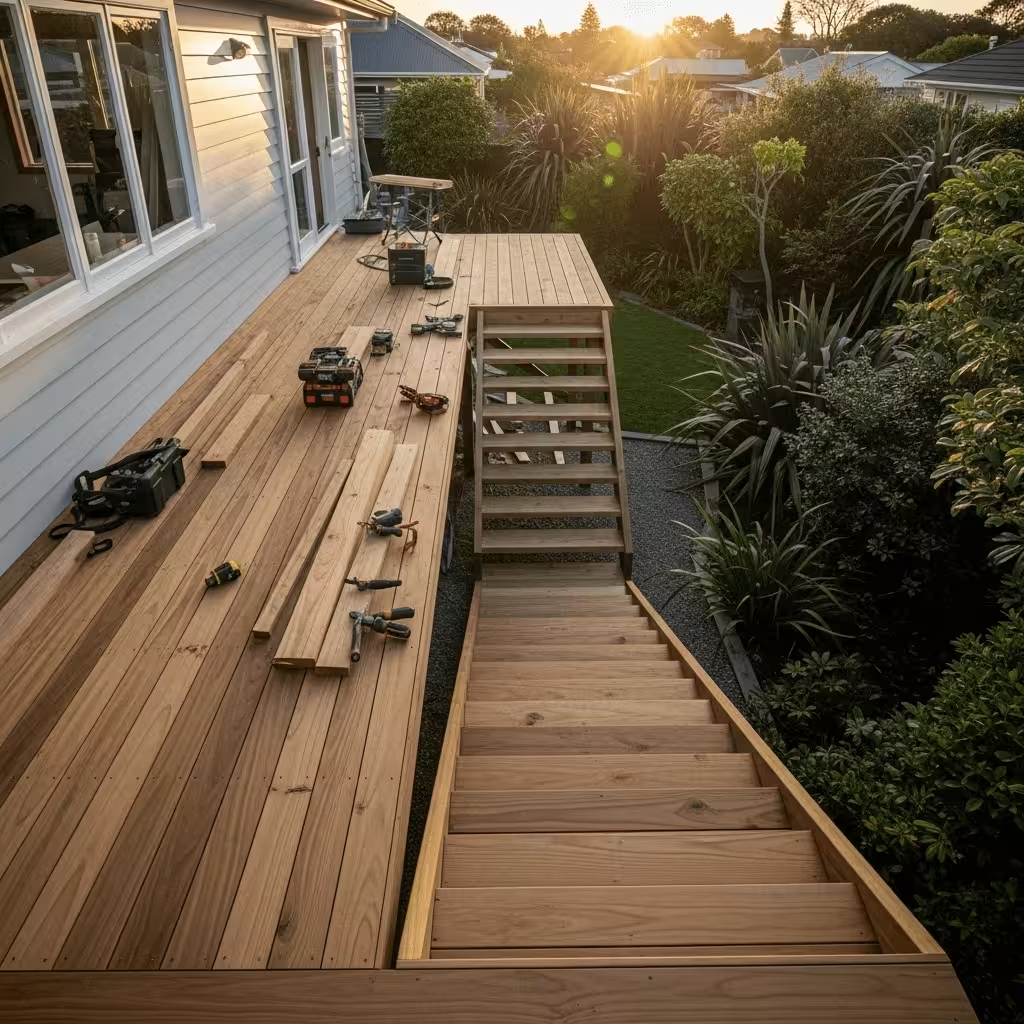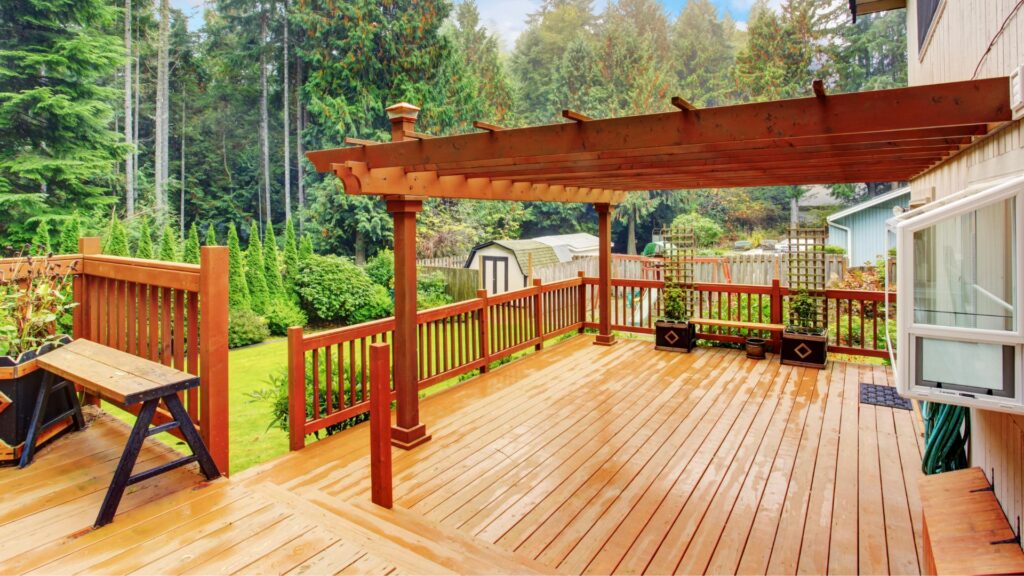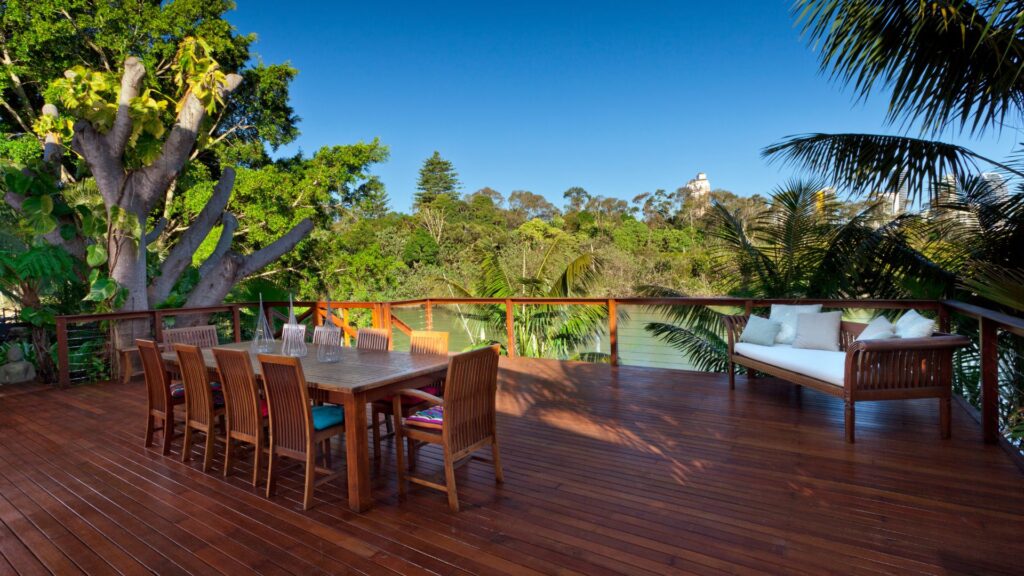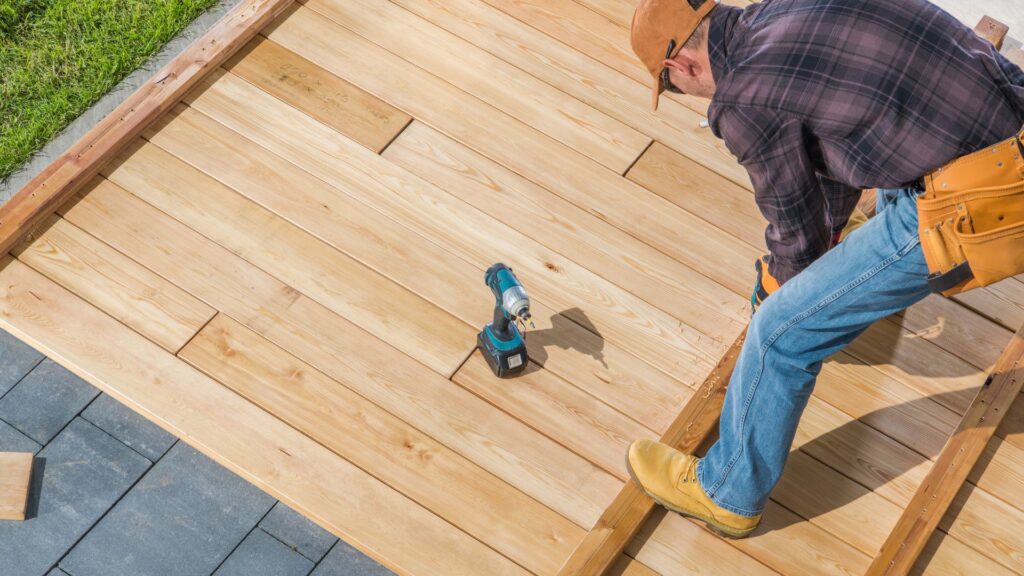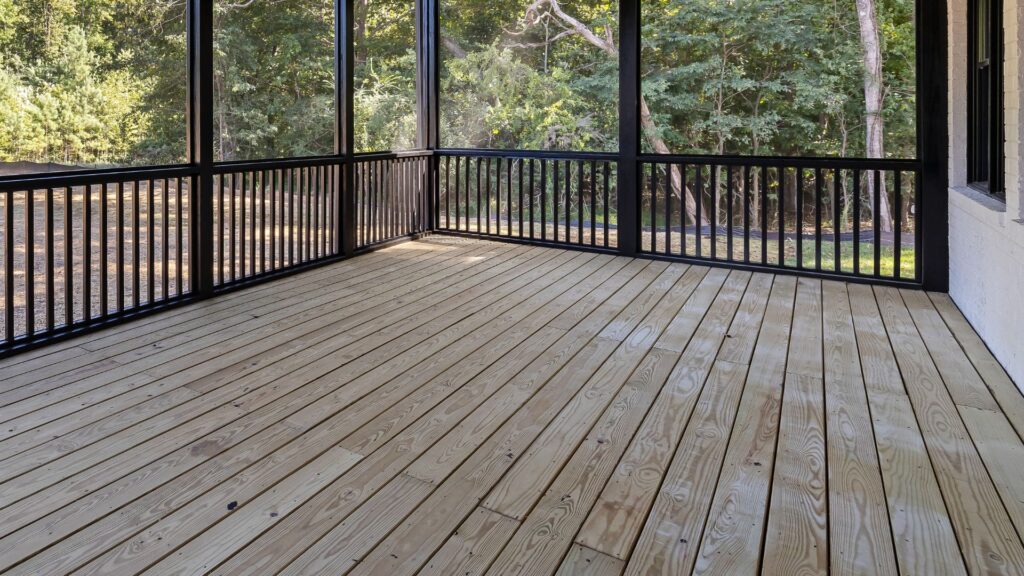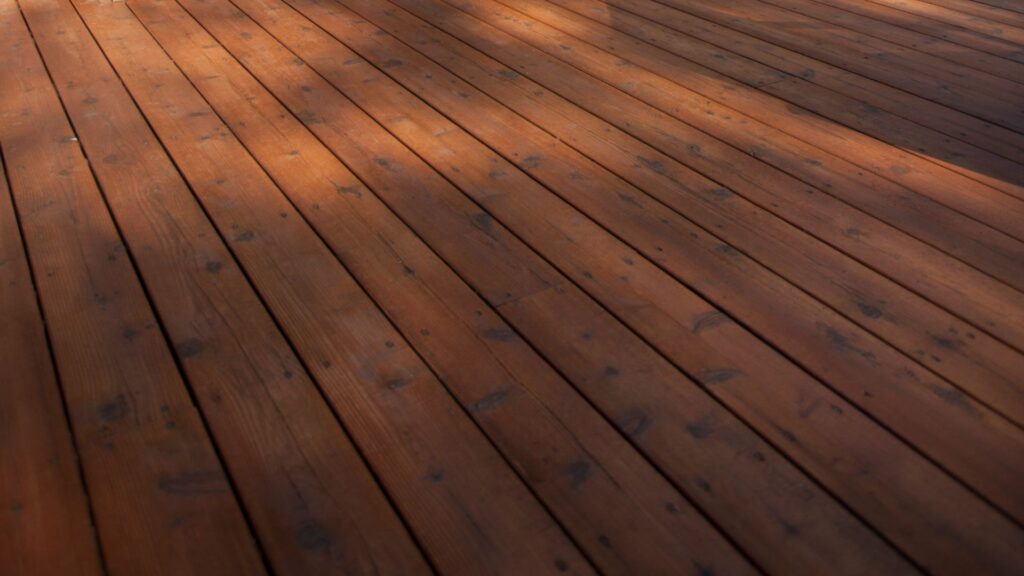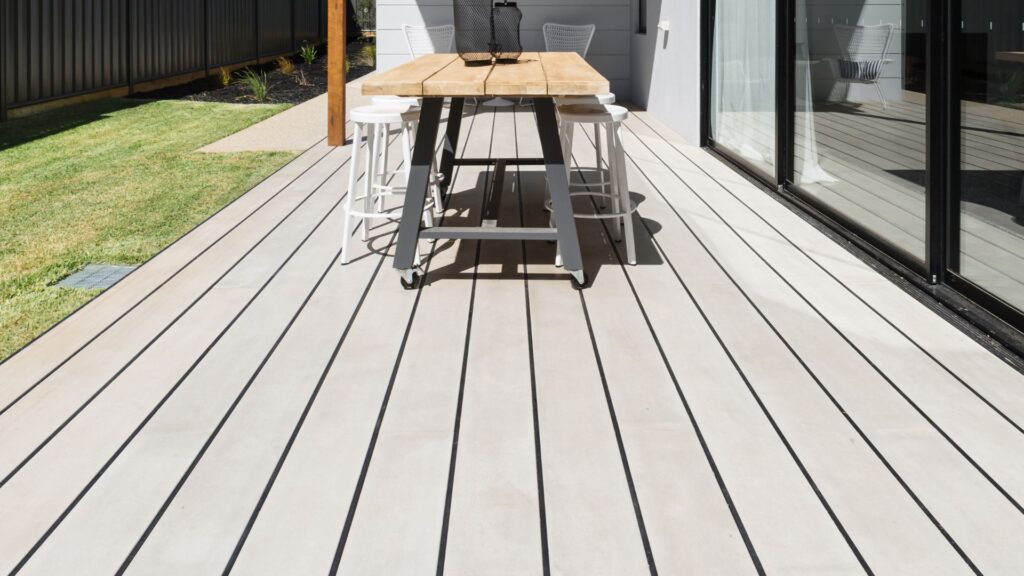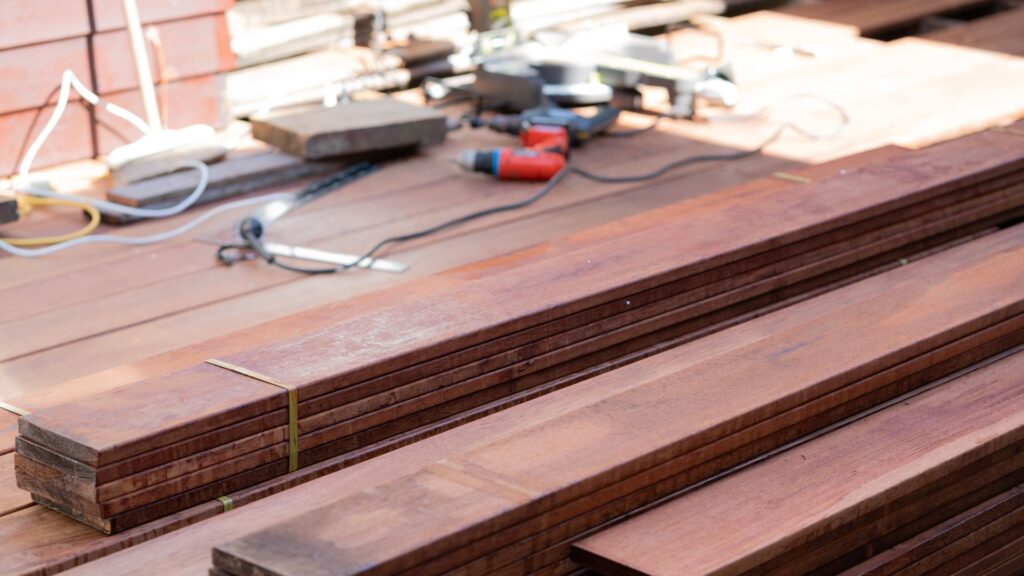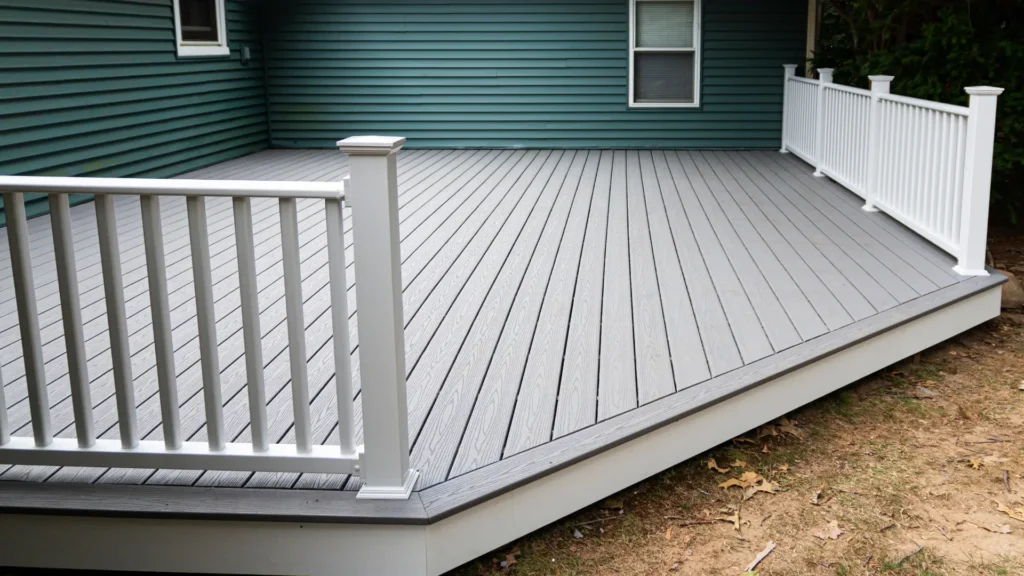Welcome to your go-to guide on the different types of decks in Christchurch. Whether you’re planning a new build, upgrading your outdoor space, or just exploring options, this article will walk you through the most popular deck styles suited to Christchurch homes. From classic timber to low-maintenance composite, and from raised to wraparound designs, you’ll learn what works best for your space, lifestyle, and budget. With Christchurch’s changing weather and unique property layouts, choosing the right deck isn’t just about looks, it’s about function, comfort, and value. Keep reading to find the style that fits your home best.
The most common types of decks in Christchurch include timber decks, composite decks, raised decks, ground-level platforms, wraparound decks, poolside decks, and rooftop decks. Each style suits different home layouts, budgets, and lifestyle needs. Timber decks offer a natural look, while composite decks are low-maintenance. Raised and rooftop decks work well for sloped or compact spaces, and poolside or wraparound options enhance outdoor living.
Table of Contents
Why Build A Deck In Christchurch?
Building a deck in Christchurch is one of the smartest ways to enhance your home’s functionality, comfort, and overall value. Whether you’re living in the suburbs, city center, or on the edge of the hills, adding a well-designed deck offers both practical and lifestyle benefits that suit the local environment and modern Kiwi living.
- Increase Outdoor Living Space
One of the main reasons Christchurch homeowners invest in decking is to extend their usable living space. A deck acts as an extra room outdoors, ideal for hosting friends, enjoying family meals, or simply relaxing after a long day. It seamlessly connects your indoor area with the backyard, creating a smooth flow between both spaces. This is especially useful in homes with smaller interior spaces or growing families who need more room without a full renovation. - Ideal For Christchurch’s Temperate Climate
Christchurch enjoys a temperate oceanic climate with mild summers and cool winters. This makes it ideal for outdoor living for most of the year. Decks provide a comfortable spot to enjoy the sunshine, fresh air, or a quiet morning coffee without leaving home. With the right design and materials, you can enjoy your deck throughout the seasons, adding a pergola or cover can help protect against strong sun or rain, extending its usability. - Adds Value To Your Property
A professionally built deck not only improves the look of your home but also boosts its resale value. Buyers see decks as a premium feature that enhances lifestyle and function. Whether it’s a timber platform, wraparound style, or composite deck, a well-maintained outdoor space often leads to higher interest and offers during resale. It’s one of the few upgrades that balances aesthetic appeal with practical use, making it a smart long-term investment. - Suits Urban, Suburban, And Rural Homes
Decks are incredibly versatile and suit a wide range of property types across Christchurch. In urban areas, ground-level or rooftop decks maximize limited space. Suburban homes often benefit from large backyard platforms or raised decks for entertaining. In rural areas, decks create a perfect viewpoint to enjoy scenic surroundings while providing a strong, stable surface for outdoor furniture or dining. Whatever your location, there’s a deck style to match. - Understanding Council Regulations And Permits
Before building a deck in Christchurch, it’s important to understand local building regulations. Most small, ground-level decks don’t need a consent, but anything over 1.5 meters high or attached to the house may require council approval. To avoid issues, it’s best to consult with a licensed builder and check the Christchurch City Council’s official guidelines on decks and outdoor structures. This ensures your project is safe, legal, and won’t face delays or fines.
A well-planned deck can transform the way you use your home. From extra space and lifestyle improvement to increasing property value, it’s a project that offers real, lasting benefits, especially when done right.

Factors To Consider Before Choosing A Deck Type
Choosing the right type of deck for your Christchurch home isn’t just about style, it’s about making sure the deck fits your space, needs, and long-term plans. Before you hire a builder or head to the hardware store, take time to think through a few important factors. These will help you avoid common mistakes and make a smarter investment in your outdoor living space.
Size Of Your Yard Or Space
Start by looking at the available area where you plan to build. A large backyard offers more flexibility for wide, wraparound, or raised decks. If you have a smaller space, a ground-level platform or corner deck might work better. Measure the area and think about how much of it you’re willing to dedicate to the deck. You don’t want the structure to overwhelm the yard or make it hard to move around. For tight city lots or townhouses, rooftop or compact decks can maximize space without compromising functionality.
Sunlight, Wind, And Climate Exposure
Christchurch weather can be unpredictable. Some areas get more sun or wind than others, depending on their location and orientation. Choose a deck type and position that works with, not against, the environment. If your yard gets strong afternoon sun, you may want to add a pergola or opt for heat-resistant materials. For windy or exposed areas, raised decks with screens or railing systems can provide shelter. Always think about how the elements will impact your deck’s comfort and lifespan.
Budget
Deck costs vary depending on design, materials, and labor. Having a clear budget from the start helps narrow down your options. Timber is often more affordable upfront but may cost more in maintenance over time. Composite decking costs more to install but usually lasts longer with less upkeep. Raised and custom-shaped decks often come with higher labor costs due to their complexity. Make sure to get quotes and compare the long-term costs, not just the installation price.
Purpose: Entertainment, Privacy, Gardening, Or Family Use
What you plan to do on your deck matters just as much as how it looks. Think about your daily habits and lifestyle. Want a space for weekend barbecues and large gatherings? A spacious, ground-level deck with built-in seating might work well. Need privacy? A raised deck with screening or a corner nook layout can give you that. If you love gardening, leave space for potted plants or raised garden beds. If you have kids, choose a safe layout with non-slip surfaces and enclosed railings. The right deck should support how you live and relax outdoors.
Material Preference: Wood Vs Composite
Timber decks, especially those made with pine or hardwoods like kwila, offer a natural look and feel. They’re easy to customise, stain, or repaint, but they need ongoing care. Composite decking blends recycled wood and plastic. It doesn’t rot, warp, or require staining, making it a strong option for low-maintenance homeowners. Both materials come with pros and cons, so consider not just the initial appearance, but how the material will perform after a few Christchurch winters.
Maintenance Commitment
How much time are you willing to spend on upkeep? Timber decks need yearly staining or sealing and regular cleaning to avoid mould and rot. If you skip maintenance, the deck will age quickly. Composite decks require far less attention, just a good scrub now and then. Before you decide, think about your schedule, budget for maintenance products or services, and how long you plan to stay in the home. Choosing a deck that matches your lifestyle will save you money and hassle in the long run.
Each of these factors plays a key role in helping Christchurch homeowners build a deck that’s not only attractive but functional and durable. By planning ahead, you’ll end up with a deck that adds real value to your home and lifestyle.

Most Common Types Of Decks In Christchurch
Choosing the right deck for your home in Christchurch depends on several factors, your space, lifestyle, budget, and even the slope of your land. Each type of deck offers unique benefits, whether you’re looking for a classic look, minimal maintenance, or a clever use of space. Here’s a detailed guide to the most common types of decks you’ll find across Christchurch properties.
Timber Decks
Timber decks remain the most popular and traditional choice among Christchurch homeowners. They’re typically built using locally sourced pine, kwila, or macrocarpa. Each timber type offers a different finish, pine is affordable and widely available, kwila provides a rich tone, and macrocarpa brings a rustic charm with natural durability.
One of the biggest advantages of timber decking is its natural aesthetic. It blends seamlessly with outdoor gardens and can be stained or painted to suit your home. It’s also highly customisable, you can adjust the shape, size, or finish based on your style preferences.
On the flip side, timber requires regular maintenance. To keep it looking fresh and avoid rot or warping, you’ll need to clean, sand, and reseal it annually. The initial cost is usually lower than composite, but long-term upkeep adds to the total expense.
- Pros: Affordable, classic appearance, easy to customise
- Cons: Requires ongoing maintenance, prone to weathering over time
Composite Decks
Composite decking is made from a blend of wood fibres and recycled plastic. It’s becoming more common in Christchurch for homeowners who want a low-maintenance and long-lasting solution. Unlike timber, composite boards don’t need staining or sealing, and they resist fading, warping, and mould.
They offer a clean, modern appearance and come in a wide range of colours and textures. This makes it easier to match your deck with your home’s design. Composite decks are especially appealing for busy families or landlords who want something durable with minimal upkeep.
The main drawback is the cost. Composite decking has a higher upfront price, but it typically pays off over time due to lower maintenance.
- Pros: Durable, low maintenance, wide colour selection
- Cons: Higher initial cost, less natural feel than timber
Raised Decks
Raised decks are ideal for properties with uneven or sloping sections, which are common in many Christchurch neighbourhoods. These decks are elevated off the ground and supported by a framework that often includes posts and beams.
One of the biggest advantages is the added space underneath, which can be used for storage or even a carport in some cases. Raised decks also provide better views, especially for homes on hillsides or with scenic surroundings.
Keep in mind that these structures usually require more complex engineering and council approval. You’ll also need to invest in railings for safety, which adds to the cost.
- Pros: Great for sloped properties, creates usable under-deck space, enhances views
- Cons: More expensive to build, requires permits and structural work
Ground-Level Or Platform Decks
Ground-level decks are flat, close to the ground, and one of the easiest types to build. They’re perfect for backyard patios, outdoor dining spaces, or extensions to your indoor living area.
These decks are usually quicker and cheaper to install since they don’t need extensive support structures or railings. They also require less maintenance and are easier to repair or replace in case of damage.
Ground-level decks are popular in Christchurch’s flat residential areas and are ideal for homeowners who want a simple, cost-effective way to enjoy the outdoors.
- Pros: Easy to build, low cost, blends into garden spaces
- Cons: Limited to flat areas, lower elevation reduces visibility and airflow
Wraparound Decks
Wraparound decks are most often seen in larger homes and traditional villas throughout Christchurch. They extend around multiple sides of a house, offering access to different rooms and outdoor views.
These decks create a spacious, open feel and are ideal for entertaining, relaxing, or simply enjoying the sun throughout the day. The continuous flow between indoors and outdoors makes the home feel larger and more connected to the environment.
They do come with higher material and installation costs due to their size and complexity. But for larger properties, the payoff in functionality and style is significant.
- Pros: Enhances aesthetics, maximises outdoor space, improves room-to-room access
- Cons: More expensive to build and maintain, requires larger property footprint
Poolside Decks
Poolside decks are designed specifically to complement swimming pools or spa areas. They must be built with non-slip materials to prevent accidents and comply with local pool safety regulations in Christchurch, including fencing and drainage requirements.
These decks are perfect for families and social gatherings. They create a functional area for lounging, sunbathing, or placing pool furniture. Composite or specially treated timber are commonly used for pool decks due to their resistance to moisture and rot.
Keep in mind that these decks involve more planning and legal considerations than standard backyard decks.
- Pros: Great for pool safety and style, perfect for relaxing and entertaining
- Cons: Must meet strict building codes, higher cost due to materials and design
Rooftop Decks
Rooftop decks are relatively rare in Christchurch but are gaining popularity in urban suburbs where land space is limited. These decks are built on top of garages, flat-roof homes, or apartment buildings.
They offer stunning views, fresh air, and a private retreat away from ground-level noise. Rooftop decks are ideal for city dwellers who want to create an outdoor escape without needing a backyard.
However, they require strong structural engineering, waterproofing, and council approval. Building costs can be high, and only certain buildings can support them.
- Pros: Adds outdoor space in compact homes, excellent for views and privacy
- Cons: Expensive to design and build, needs council approval and structural safety checks
Choosing the right type of deck for your Christchurch home comes down to your space, needs, and lifestyle. Whether you want something classic like timber or prefer a low-maintenance option like composite, each deck style offers unique benefits. Take the time to explore what fits your property best before starting your project.

Decking Materials Commonly Used In Christchurch
Choosing the right decking material is just as important as picking the right deck style. In Christchurch, homeowners prefer materials that can handle weather changes, stay strong over time, and look great with minimal effort. Here’s a full breakdown of the most popular decking materials used in the area, each with its own pros, cons, maintenance needs, and environmental impact.
Treated Pine
Treated pine is one of the most affordable and widely used decking materials in Christchurch. It’s softwood that’s pressure-treated to resist insects, rot, and moisture.
Pros:
- Budget-friendly option
- Easy to cut, shape, and work with
- Readily available in most hardware stores
Cons:
- Can warp or crack over time if not maintained
- Needs regular sealing or staining
- Less visually appealing than hardwoods
Maintenance Tips:
Clean your pine deck every few months and apply a weatherproof sealant once a year to extend its lifespan.
Lifespan:
With good care, treated pine can last 10–15 years.
Environmental Consideration:
Because of the chemical treatment, treated pine is not the most eco-friendly option. Be cautious when disposing of off-cuts or old boards.
Kwila
Kwila is a durable tropical hardwood commonly used in high-end decks across Christchurch. It has a rich, reddish-brown color and naturally resists decay and termites.
Pros:
- Strong and long-lasting
- Elegant appearance
- Naturally resistant to insects and rot
Cons:
- Higher upfront cost
- Can bleed tannins (which stain concrete or pavers)
- Requires regular oiling to keep its color
Maintenance Tips:
Wash and oil the boards every 6–12 months to maintain the deep red tone and prevent fading.
Lifespan:
20–30 years when properly maintained.
Environmental Consideration:
Make sure to choose Kwila from certified sustainable sources to avoid contributing to deforestation.
Macrocarpa
Macrocarpa is a locally sourced softwood that’s gaining popularity for its natural durability and rustic charm. It’s untreated, making it a chemical-free option.
Pros:
- New Zealand-grown, reducing transport emissions
- No chemical treatment
- Unique, golden-brown finish
Cons:
- Less durable than hardwoods
- Susceptible to weathering if not sealed
- Limited availability in some regions
Maintenance Tips:
Apply a water-repellent sealant yearly and keep it clean to prevent mould and mildew.
Lifespan:
15–20 years with regular care.
Environmental Consideration:
Sustainably harvested macrocarpa is a great eco-conscious choice due to its local origin and lack of chemical treatment.
Composite Boards
Composite decking is made from recycled wood fibers and plastic, making it a popular low-maintenance choice for busy households.
Pros:
- Extremely low maintenance
- Resists warping, fading, and pests
- Comes in various colours and textures
Cons:
- More expensive upfront
- Can get hot under direct sunlight
- Not as natural-looking as timber
Maintenance Tips:
Just sweep and wash occasionally with mild soap and water, no need for staining or sealing.
Lifespan:
Can last 25–30 years or more with minimal upkeep.
Environmental Consideration:
Most composite boards use recycled materials and can be recycled again, making them a strong eco-friendly option.
Bamboo
Bamboo decking is an emerging material in New Zealand and offers a modern look with good sustainability credentials. It’s made from compressed bamboo fibres and resin.
Pros:
- Harder than many hardwoods
- Renewable and fast-growing source
- Sleek, modern finish
Cons:
- Can be slippery when wet
- Still new in the NZ market, so fewer local suppliers
- Needs proper sealing to prevent swelling
Maintenance Tips:
Clean regularly and apply sealants every 1–2 years to preserve water resistance and prevent surface wear.
Lifespan:
10–20 years, depending on brand and care.
Environmental Consideration:
Bamboo is a fast-growing, renewable resource, making it one of the most sustainable decking choices when sourced responsibly.
When selecting a decking material in Christchurch, weigh cost, durability, aesthetics, and environmental impact. Think about how much maintenance you’re willing to do and how the material will perform in local weather. The right choice will not only improve your outdoor space but also add long-term value to your home.

Tips For Hiring A Local Deck Builder In Christchurch
Hiring the right deck builder can make or break your outdoor project. Christchurch homeowners have plenty of options, but not every builder will deliver the quality, safety, and finish your deck deserves. Here’s what you should look for before signing any contract.
- Ask For Licensed And Experienced Professionals
Start by checking if the deck builder holds the proper license to work in New Zealand. Licensed professionals follow industry standards and are more likely to deliver reliable, long-lasting results. Experience also matters. Builders with several years in the field are better equipped to handle Christchurch’s unique weather conditions, land types, and council regulations. - Check If They Follow NZ Building Code
All deck construction in Christchurch must comply with the New Zealand Building Code. A reputable deck builder will understand the legal requirements, including safety features like handrails, load limits, waterproofing, and structural integrity. Builders who cut corners to save time or cost may leave you with compliance issues and future repairs. - Look At Past Projects Or Customer Reviews
One of the best ways to assess a builder’s work is by reviewing their past projects. Ask to see photos, visit completed decks in your area, or check their website and social media. Also, read online reviews or ask for client references. Look for consistent feedback on quality, timeliness, and communication. This gives you a realistic idea of what to expect. - Always Get A Detailed Quote
Never accept vague or verbal pricing. A professional builder will provide a written quote that breaks down materials, labour, timeframes, and extra costs. This protects you from hidden fees and helps you compare quotes from other builders fairly. Make sure the quote includes GST and specifies what happens if the project scope changes. - Ask About Council Approvals
Some deck types in Christchurch require building consent, especially raised or complex structures. A good builder will know when permits are needed and help guide you through the process. Ask if they’ll handle the paperwork or if that’s your responsibility. Ignoring council approval could lead to legal trouble or demolition later on.
By following these tips, you can find a Christchurch deck builder who meets your standards and delivers a finished product you’ll enjoy for years. A well-built deck isn’t just about materials, it’s about trust, experience, and attention to detail.

Cost Guide For Deck Types
Building a deck in Christchurch is a smart way to expand your living space and increase property value. But before you get started, it’s important to understand how much it might cost. The price of a deck can vary widely based on materials, size, and design. Whether you’re looking for something simple or a more custom build, knowing the cost factors will help you plan smarter and avoid surprises.
General Cost Ranges By Material And Type
Deck costs in Christchurch typically range from $300 to $800 per square meter, depending on the material and complexity. Here’s a quick breakdown:
- Timber Decks: Expect to pay around $300–$600 per square meter. Pine is usually cheaper, while hardwoods like kwila cost more.
- Composite Decks: These range from $500–$800 per square meter. Though more expensive upfront, they save on maintenance in the long run.
- Raised Decks: These can cost more due to extra framing, permits, and safety rails, budget $500–$900 per square meter.
- Ground-Level Decks: Simpler to build and more affordable, starting at about $300 per square meter.
- Wraparound Or Custom Decks: These involve more materials and labor. Depending on size and design, they could go above $900 per square meter.
Keep in mind, these are estimates. The final price depends on specific project details and local supplier rates.
What Affects The Price?
Several key factors impact how much your deck will cost:
- Size Of The Deck: Larger decks require more materials and labor. A 10m² deck costs less than a 25m² one, not just in wood but in structural supports and fasteners.
- Material Choice: Timber is generally cheaper than composite, but it comes with ongoing maintenance costs. Composite is costlier but lasts longer with less upkeep.
- Location On Property: Is your deck going on flat land or a steep slope? Sloped or uneven ground needs more preparation and structural work, increasing labor and material costs.
- Design Complexity: Basic square or rectangular decks are simpler and cheaper to build. Multi-level, curved, or wraparound decks take more time and skill, which drives up the price.
- Council Requirements: Some builds require permits or inspections. These add to the cost, especially for raised or rooftop decks.
Understanding these variables helps you set a realistic budget and make better design decisions early on.
Cost-Saving Tips
You don’t need to sacrifice quality to save money. Try these practical strategies:
- Keep The Design Simple: Stick to clean lines and standard shapes to reduce labor and material waste.
- Build In The Off-Season: Contractors may offer lower rates during winter or slower months.
- Choose Treated Pine: It’s one of the most budget-friendly materials and works well in Christchurch’s climate.
- Compare Quotes: Always get at least 2–3 quotes from licensed builders to ensure you’re paying a fair price.
- Do Some Work Yourself: If you’re comfortable, consider painting, staining, or basic clean-up to lower labor costs.
Budgeting smartly doesn’t mean cutting corners, it means spending money where it counts most.
Why Quality Matters Over Cheap Materials
Choosing cheaper materials or cutting corners might save money now, but it usually costs more in the long run. Low-quality timber can warp or rot within a few seasons, especially in Christchurch’s damp winter months. Cheap fasteners or hardware may rust quickly, weakening the structure.
Investing in better materials means:
- Longer Lifespan: A composite or hardwood deck lasts 20–30 years with minimal maintenance.
- Better Safety: Stronger materials prevent sagging, cracking, or collapse.
- Higher Resale Value: Well-built decks add real value to your home, while poorly built ones can turn buyers away.
- Lower Maintenance Costs: Quality materials require less upkeep, saving you time and money year after year.
In short, quality isn’t a luxury, it’s the foundation of a durable, safe, and visually appealing deck.
If you’re planning to build or upgrade a deck in Christchurch, knowing these cost factors will help you make smart, confident choices. Focus on value, not just price, and your investment will pay off for years to come.

Maintenance Tips To Keep Your Deck Looking Great
Keeping your deck in top condition isn’t just about looks, it helps extend its life, protect your investment, and ensure safety. Whether you have a timber or composite deck, regular upkeep is key, especially with Christchurch’s changing weather. Below are practical maintenance tips to help keep your deck clean, strong, and visually appealing all year round.
Seasonal Cleaning
Every season brings new challenges for your deck. In spring and autumn, fallen leaves and moisture can cause staining, mildew, or surface damage. Sweep your deck weekly to remove dirt, leaves, and debris. Use a soft-bristled broom and a garden hose to rinse off mud or dust. During summer, especially after BBQs or gatherings, clean spills immediately to prevent staining. In winter, remove snow or pooled water if applicable, as it can speed up wear or lead to rot.
Use a mild, eco-friendly deck cleaner twice a year. This helps lift dirt, grime, and algae without harming your wood or composite surface. Avoid pressure washers unless the manufacturer or builder recommends it, too much pressure can damage wood fibres or void warranties.
Sealing And Staining Timber Decks
Timber decks like pine, kwila, or macrocarpa need sealing or staining to stay weather-resistant. Without treatment, wood absorbs moisture, leading to cracking, splitting, or rot. Ideally, reseal your deck every 12 to 18 months, or as soon as you notice water no longer beading on the surface.
Before applying any stain or sealant, make sure the deck is clean and completely dry. Choose a product suited to Christchurch’s UV exposure and temperature shifts. A clear sealant highlights the timber’s natural grain, while tinted stains offer extra UV protection and colour variety.
Always apply sealant with a roller or brush and follow the grain of the wood. Don’t forget the edges and steps. This not only preserves your deck’s appearance but also adds a layer of protection against moisture and sun damage.
Checking For Rot, Mould, Or Pests
Routine inspections are one of the simplest ways to avoid serious problems. Every few months, especially after heavy rain or humidity, check your timber deck for soft spots, dark stains, or musty smells, these can be signs of rot. Press a screwdriver gently into suspect areas to see if the wood gives way.
Look underneath the deck for signs of moisture buildup or poor drainage. Make sure airflow isn’t blocked by debris, leaves, or soil. If you notice mould or mildew, scrub the affected area with a water and vinegar solution or a non-toxic deck cleaner.
Watch for pests like ants, beetles, or borer, especially in untreated wood. Tiny holes or frass (fine wood dust) can signal an infestation. If you see these signs, call a professional before the damage spreads.
Composite Deck Care
Composite decks are known for their low-maintenance nature, but that doesn’t mean they’re maintenance-free. Regular sweeping and cleaning prevent dirt buildup and slippery surfaces. Unlike timber, composite boards don’t need staining or sealing, but they can still get stained by grease, food, or mould if neglected.
Use a soft brush and warm soapy water to clean the surface. Rinse thoroughly to remove any residue. Avoid bleach-based cleaners or harsh chemicals, they can dull the colour or damage the surface. If your deck has textured or grooved surfaces, pay extra attention to those areas where dirt can settle.
Check the gaps between boards for trapped debris. Clearing these keeps water draining properly and avoids long-term issues. Also, inspect fasteners and connectors once or twice a year to make sure everything is still secure.
Ready to build the perfect deck for your Christchurch home? Visit us to explore how we can help bring your outdoor space to life.

FAQs: About Types Of Deck In Christchurch
What are the most popular types of decks in Christchurch?
Timber decks, composite decks, raised decks, ground-level platforms, wraparound decks, poolside decks, and rooftop decks are the most common options in Christchurch. Each has its own benefits depending on your property type, budget, and outdoor needs.
Which deck type is best for Christchurch’s climate?
Composite decks are highly weather-resistant and require minimal maintenance, making them ideal for Christchurch’s changing weather. Timber decks like kwila and macrocarpa also perform well if regularly maintained.
Do I need council approval to build a deck in Christchurch?
Yes, you may need council consent, especially if the deck is higher than 1.5 meters or part of a larger renovation. Always check with the Christchurch City Council or your builder before starting construction.
How much does it cost to build a deck in Christchurch?
Deck costs vary based on materials, size, and design. On average, timber decks may cost $300–$600 per square meter, while composite decks may range from $500–$800 per square meter.
What’s the difference between timber and composite decking?
Timber decking is natural, cost-effective, and visually appealing but requires regular staining and sealing. Composite decking is more durable and low-maintenance but comes at a higher upfront cost.
Are raised decks suitable for sloped properties in Christchurch?
Yes, raised decks are a great solution for sloped sections. They help level out uneven ground and create usable outdoor living space with views and storage underneath.
How long does it take to build a deck in Christchurch?
Most standard decks take 1–3 weeks to build, depending on complexity, weather, and council approvals. Custom or larger decks may take longer.
Which deck type adds the most value to a home?
Wraparound and raised decks often add the most value due to increased usable space and visual appeal. A well-maintained timber or composite deck also boosts curb appeal and buyer interest.
Can I install a deck myself, or should I hire a professional?
DIY is possible for small, ground-level decks, but hiring a professional ensures safety, compliance with building codes, and better long-term results—especially for raised or complex structures.
What maintenance does a deck need in Christchurch?
Timber decks need annual sealing, staining, and cleaning. Composite decks require occasional washing with soap and water. Regular inspections for rot, mould, and loose boards are recommended for all deck types.
Conclusion
Choosing the right type of deck for your Christchurch home depends on several important factors—your available space, how you plan to use the area, the overall style of your home, and of course, your budget. From the classic appeal of timber decks to the low-maintenance benefits of composite options, and from simple ground-level designs to elevated or wraparound layouts, there’s a deck style to match every lifestyle. Before making a decision, think about how much time you want to spend on upkeep, whether your property sits on a slope, and how you envision using your outdoor space throughout the year. If you’re unsure where to start, speaking with a local deck builder in Christchurch can help you get a realistic sense of design, cost, and council requirements. Looking to build the perfect deck for your Christchurch home? Get expert help today.


